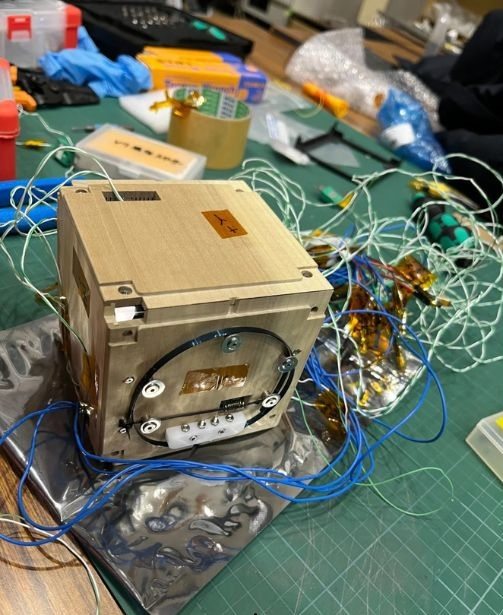Bengaluru, NFAPost: NASA and the Japan Aerospace Exploration Agency (JAXA) have announced their collaboration to launch the world’s first wooden satellite, LignoSat, as early as the summer of 2024. This innovative project aims to address the increasing issue of space debris by introducing a biodegradable material into Earth’s orbit.
LignoSat, a compact satellite crafted from magnolia wood, is set to revolutionize space technology with its unique properties. Unlike traditional satellites made of metal, magnolia wood offers a surprising solution to the growing problem of space junk. The decision to use wood comes from its ability to withstand the harsh conditions of space, remaining intact in the vacuum without burning or rotting.
Earlier this year, scientists conducted successful tests aboard the International Space Station (ISS) using three different wood samples: magnolia, cherry, and birch. The results revealed that magnolia wood demonstrated exceptional durability, showing no signs of deformation or damage after exposure to the extreme environment of outer space, including temperature variations, cosmic rays, and solar particles, over a period of 10 months.
“Three wood specimens were tested and showed no deformation after space exposure,” the researchers stated in a May press release. “Despite the extreme environment of outer space involving significant temperature changes and exposure to intense cosmic rays and dangerous solar particles for 10 months, tests confirmed no decomposition or deformations, such as cracking, warping, peeling, or surface damage.”
The choice of magnolia over other wood types was based on its resilience during the manufacturing process, as it is less likely to split or break. This meticulous selection process ensures that LignoSat will maintain its structural integrity throughout its mission.
With over 9,300 tons of space objects, including defunct satellites and spent rocket stages, orbiting Earth, the deployment of wooden satellites presents a promising solution to the growing issue of space debris. Traditional metal spacecraft contribute to light pollution, affecting astronomical observations and making it challenging to detect distant space phenomena.
Metal satellites are not only expensive but also pose a threat to existing space infrastructure, including the International Space Station and other manned spacecraft. The introduction of wooden satellites like LignoSat aims to mitigate these concerns by offering a more environmentally friendly and less hazardous alternative.
The launch of LignoSat marks a significant milestone in the pursuit of sustainable space exploration. As we look toward the summer of 2024, the world eagerly anticipates the successful deployment of this wooden satellite and the positive impact it could have on the future of space technology and environmental stewardship.





